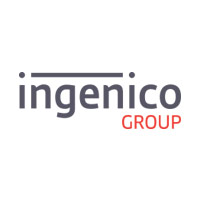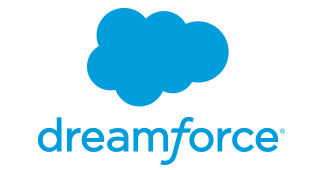Published
- 03:00 am

Torstone Technology, the leading global provider of post-trade securities and derivatives processing, today announced the appointment of Payal Raina to the newly created position of Global Head of Marketing, with immediate effect.
Payal will be responsible for overseeing Torstone Technology’s global marketing and branding initiatives as well as internal and external communications for the company. With over a decade of experience in B2B marketing for financial and technology companies in Europe and North America, Payal has a wealth of experience implementing successful marketing strategies, building brands and subsequently increasing revenues of global businesses.
Commenting on Payal’s appointment, Brian Collings, CEO, Torstone Technology, said, “Payal’s extensive knowledge of marketing and communications across finance and technology will help us to build our brand across key markets, expand our footprint and raise awareness of our expertise in supporting clients’ post-trade processing requirements.”
Prior to Torstone Technology, Payal led marketing for eNett’s EMEA and Americas region headquartered in London, responsible for growing new business and driving strategic marketing plans across these regions. Payal’s career in marketing began with Microsoft in Canada; thereafter she worked for a number of world leading brands such as General Electric, Barclays, WorldPay and EnergyQuote JHA (now part of Accenture group) where she held a variety of senior marketing roles.
“I am very excited to be joining Torstone Technology at a time when technology is transforming the way that financial services firms operate stated Payal Raina. I look forward to working with the team of talented individuals at Torstone to strengthen our global brand and continue to support our clients as they respond to this change.”
Related News
- 02:00 am

PIN on Mobile’ (PoM, also known as ‘PIN on Glass’) is the latest innovation in payment acceptance that is set to revolutionise the Payments industry. The publication of a new, major Payment Card Industry Security Standards Council (PCI SSC) ‘Software-Based PIN Entry’ standard for PIN on Mobile solutions will enable merchants to accept PIN-based payments entered directly in to consumer off-the-shelf devices (COTS).
The aim of the standard is to securely protect the integrity of a transaction on an unsecured device, such as a smartphone or tablet. The standard is expected to include a specification for isolating and protecting the entry of PIN directly in to COTS devices.
This major development in card acceptance comes in response to the growing demand for in-store smartphone and tablet based payment authentication. It is designed to help facilitate the huge predicted growth of merchant card acceptance points and global card transactions volumes, particularly in under developed economies and for SME merchants.
MYPINPAD’s best in class PoM security will be an integral part of one of the first certified PoM solutions for in-store payments. To drive adoption of MYPINPAD’s PoM market offering, enabling the next-generation of mPOS, David Poole, has been appointed as Global Head of Mobile POS Solutions. Poole has 30 years’ experience at the forefront of new POS technologies and payment processes.
MYPINPAD’s PIN Entry Solution (MPES) for mPOS is a software-based PIN pad solution that enables the secure entry of the cardholder PIN on the merchant’s mobile device, as an alternative to traditional hardware-based solutions, removing the need for expensive hardware based PIN pads. MYPINPAD provides a choice of integration alternatives for partners to build PoM solutions and are working with a number of leading Secure Card Reader (SRC) manufacturers to provide a wide range of hardware choices for clients.
David Poole, Global Head of Mobile POS Solutions at MYPINPAD commented: “Despite the abundance of current mPOS solutions available, there is a clear requirement to introduce lower cost acceptance solutions without introducing higher risk. PoM is expected to both transform and grow card acceptance exponentially, particularly for small and medium size retailers but also for established retailers seeking to improve the in-store customer experience and staff productivity. Removing the need for a separate hardware PIN pad allows vendors to produce smaller, lower-cost devices. By reducing the solution cost, a significant barrier to entry for card acceptance by merchants is removed.”
The card payments industry and consumers have long benefited from the successful implementation of PCI SSC standards. The impending standard will provide all stakeholders with a software-based approach for protecting PIN-entry on COTS devices. This method of in-store authentication will undoubtedly transform the payments acceptance landscape.
Publication of the standard is expected in December this year and will create a baseline for industry compliance, whilst helping to protect consumers. COTS devices will soon be deployed globally as smartphone and tablet based card acceptance moves to mass international adoption.
Related News
- 02:00 am

Almazergienbank has announced that it is the first bank in Russia’s far East, and amongst the first in the country, to support the issuing and acquiring of JCB cards using Compass Plus products. Compass Plus also provided consultation services and assisted extensively in the testing phase of the project.
In partnering with JCB, Almazergienbank customers will experience a variety of benefits which include the acceptance of JCB cards across retailers in almost 200 countries around the world, the ability to receive cashback, and discounts from JCB’s partner network, such as hotels, airlines, restaurants and more.
"We see great prospects in developing our partnership with JCB, and we are pleased that Compass Plus has supported us once again and helped implement such a significant project," said Lyudmila Nikolaeva, Chairman of the Board at Almazergienbank.
The bank also plans to launch Mir-JCB cards, which will be accepted as Mir in Russia and JCB when used elsewhere. This will also be implemented with support from Compass Plus.
Related News
- 03:00 am

1. DevSecOps in the age of the cloud
DevOps is an increasingly popular development practice allowing organisations to increase the speed at which they produce apps and services. An unfortunate side effect of this process is that you might also be accelerating the production of insecure code and bugs, with the potential to cause a serious financial and reputational hit if not managed correctly.
In an increasingly cloud- and mobile-first world, it will become essential to also bake in security to this process: thus, DevOps becomes DevSecOps. Embracing an application lifecycle approach in this way will end up saving organisations time and money – because problems are always easier to solve when security is addressed as far “left” in the lifecycle as possible. It will not be an easy shift for many security professionals, but third-party expertise will help overcome cultural resistance and arm organisations with the right processes and automated toolsets to drive success.
2. Machine learning and managed security
Machine learning, AI and automation have the potential to plug chronic security skills shortages and transform threat defence by spotting sophisticated advanced attacks and zero-day threats. Whatever the industry marketing hype might have you believe, machine learning is actually far from new – in fact, NTT Security has been using it for 15 years.
Machine learning is not a silver bullet and should instead be used as part of a layered approach to threat prevention. But it can spot patterns, which human eyes might miss. That said, it shouldn’t be seen as a replacement for human expertise. Part of the value we offer is in arming Security Operations Centre experts with machine learning tools. The automated tools find the needle in the haystack, but then it’s vital to get human eyes on that needle to analyse it further.
These kinds of capabilities are set to drive a surge in managed security services (MSS) next year and beyond. According to our Risk:Value 2017 report 30% of UK organisations are using or planning to use an MSSP, with 31% claiming this is because of lack of internal skills and 27% because they want access to better technology.
3. From tech- to business-driven security
Security professionals love to talk bits and bytes, sometimes even “out-geeking” the rest of the IT department. But we are already seeing a change take place, and it is a necessary change: in fact, it’s a question of digital survival. Put simply, security strategy must be aligned to business strategy or vital digital transformation projects will fail and the business will become irrelevant. Some 85% of business leaders believe they only have two years to make progress in their digital transformation programmes before they fall behind their competitors.
PS: Honourable GDPR mention
Finally, 2018 will be the year when the GDPR (25 May) and NIS Directive (9 May) come into force. I won’t add to the thousands of opinions already circulating about this, but suffice to say, it’s vital to get your compliance house in order asap. If organisations are having trouble getting the Board’s attention, remind them of the maximum fines for non-compliance: £17m or 4% of global annual turnover, whichever is higher.
Related News
- 01:00 am

One year after the beginning of the partnership with Alipay, Concardis has successfully implemented the app, which is based on QR codes, at more than 250 merchants with a total of 1,000 points of sale in Germany – including renowned brands such as Wempe, GUCCI, Bottega Veneta, Timberland, The North Face, Napapirjri, Dolce&Gabbana and Promod. Now the two partners are expanding their collaboration. In addition to Germany and Austria, Concardis will now offer Alipay in Switzerland and Benelux.
Following a brief testing phase, all merchants who opted for Alipay and have multiple locations have carried out the territory-wide roll-out. To date, the range of amounts for transactions performed with Alipay is from €10 to €14,000. This shows that the app is used for a wide variety of purchases.
‘From the beginning, we were convinced of the success of Alipay in Germany and Austria. The current figures have exceeded our expectations,’ says Concardis CEO Marcus W. Mosen. ‘In Europe, acceptance of Alipay is becoming more and more important for bricks-and-mortar retailers due to the rising number of tourists from China. The roll-out in Switzerland and Benelux is therefore the natural next step for us.’
Large shopping centres, outlets and airports are particularly common locations for payments made using Alipay. Alipay is an important part of the payment options at these locations, because they are frequented by tourists from Asia who specifically choose shops that accept Alipay as a payment method. The user has the option of letting the app direct it right to the shops that accept the Chinese payment solution. Alipay also functions as a marketing tool. Merchants can publish discount promotions and coupons directly via the Alipay app. Customers then receive a push notification on their smartphone when they are near the shop.
‘Due to the positive response and the growing demand, we will continue to expand our offering of Alipay-enabled POS terminals,’ said Mosen. ‘Among other things, Alipay payments will soon be possible via our mobile POS solution Optipay.’ With Concardis, accepting Alipay can be realised quickly and simply. After concluding the contract, it only takes two to three working days until the Alipay software is provided. Payment by Alipay takes place at the point of sale using a QR code, which eliminates the need for currency conversion.
With more than 800 million users, Alipay is the world’s largest lifestyle and payment platform. Its share of the Chinese online payment market is greater than 50 per cent; in the mobile payment sector this figure grows to 80 per cent.
Related News
- 03:00 am

Almost 140 million people are expected to shop online until the end of this year in Latin America, spending around 60 billion USD, according to Statista. The mega discount season in November is responsible for a major part of driving these purchasing decisions. In Brazil, for instance, Black Friday generated more than half a billion USD in sales last year, and is expected to generate more than 700 million USD in 2017.
To take full advantage and increase sales potential during this season in Latin America, it is very important for e-commerces to understand the specificities of Black Friday throughout the region. In order to help global e-commerce merchants, EBANX, the leader in Latin American local payment processing released a free e-book with detailed information about the season in the most important economies of the region: Brazil, Mexico, Argentina, Chile, Colombia, and Peru.
The Ultimate Guide to Black Friday Latin America, made in a partnership with the Brazilian e-commerce platform VTex provides information about the names and dates of “Black Friday” promotions in these countries, which differ from the United States discount season. For instance, despite Black Friday in Brazil being on the same day as the biggest shopping date in the U.S., in Brazil the discounts associated with this campaign usually start before the actual day. And the final sales date can be extended, turning it into a real "Black Week".
Mexico does not follow the United States shopping sales calendar for the month of November either. The top sales date in this Latin American country has a different name, El Buen Fin (The Good Weekend), and takes place over the course of four days –– this year it will take place from November 17th-20th.
Merchants will also find The Ultimate Guide to Black Friday Latin America e-book to be an influential guide by providing the best strategies to reach the full sales potential of Black Friday in the region. One strategy is by offering local payment methods, such as cash payments and accepting local credit cards.
Considering that around 49% of the adult population in Latin America and the Caribbean is unbanked, it is easy to understand how important cash payment methods are. These payment methods allow those that do not have access to a bank account to buy from international e-commerces. These methods are highly used and trusted by Latin Americans. For instance, all Brazilians pay their utility bills with the boleto bancário, a Brazilian cash payment method.
When it comes to local credit cards, installments are a big deal. For instance, according to a research study conducted by E-bit in Brazil, 67% of those who intend to buy cellphones and smartphones on Black Friday this year using local credit cards will pay with installments. Among shoppers who will buy clothes and fashion accessories using credit cards, 50% will opt to pay with installments. Paying with installments is a very common practice in Brazil, and it is an additional payment option offered by many brick-and-mortar stores and domestic online merchants.
Related News
- 05:00 am

Masergy, a leading provider of hybrid networking, managed security and cloud communications solutions, today announced that Ingenico Group, the global leader in seamless payment, has selected the company's award-winning managed SD-WAN Pro to support its global operations.
Ingenico has led the payments industry for nearly 40 years. It is the trusted partner of bank and acquirers as well as retailers and e-merchants worldwide. Its in-store, online and omnichannel payment services help 250,000 merchants expand their business across borders and channels. Ingenico enables banks and acquirers to reduce the complexity of managing payments and differentiate their offer from the competition, notably with the world's largest payment method portfolio.
Masergy's fully managed SD-WAN Pro provides high performance, agile networking for Ingenico's global offices and data centres. Masergy enables Ingenico to reap the benefits of SD-WAN technology while offering flexible connectivity options that meet its evolving business needs and application performance.
"We ran a four-month RFP to equip our global estate of 88 sites with a managed SD-WAN solution. We investigated all major operators and vendors available and decided to partner with Masergy because of the maturity of its SD-WAN service offering, global implementation expertise and personalised technical support," said Jean-Marc Voelckel, CIO, Ingenico Group. "Masergy offers us a unique fully managed solution for our business. With Masergy SD-WAN, we have lowered our total cost of operations."
"SD-WAN can make your network more agile with centralised control and management. A managed SD-WAN solution lets organizations more rapidly deploy new sites, optimize application performance and support bandwidth-hungry applications," said Masergy CTO Tim Naramore. "We are proud that Ingenico chose to partner with us for the deployment of our fully managed solution. It's proof that unlike many of our competitors, Masergy SD-WAN is ready and able to tackle the real, large-scale deployments that global enterprises, such as Ingenico, need."
Related News
- 07:00 am

Today FinancialForce, the customer-centric ERP cloud vendor built on the Salesforce Platform will announce AI capabilities and a deeper integration with Einstein and Discovery, as well as the first end-to-end Revenue Management solution - CPQ through to revenue recognition - thanks to an integration with Salesforce CPQ.
As the deadline for the new revenue recognition accounting standards (ASC 606 & IFRS 15) approaches, the combined FinancialForce and Salesforce solution provides provides full visibility of revenue to ensure compliance.
FinancialForce continues to make innovative use of the Salesforce Platform - from operational reporting and dashboards to financial reporting, and AI-powered predictive and prescriptive analytics. This integration furthers FinancialForce’s ability to offer customers advanced financial reporting with Einstein Analytics as well as advanced Einstein-driven insights embedded within FinancialForce ERP.
The news follows recent innovations and updates to the company’s Professional Services Automation (PSA) application. Last month, we announced new Shift Management and Forecasting capabilities in PSA to give customers greater control and predictability over projects and the resources assigned to those projects.
Related News
- 07:00 am

Finantix, an established provider of sales and advisory software for financial services, today announced the activation of a third market in its pan-Asia partnership with Manulife, a leading international financial services group. The solution helps digitise Manulife’s agency distribution and create an improved experience for customers of select Manulife bank partners. The ‘go live’ milestone in Singapore follows earlier activations in Hong Kong and Japan.
Thedigital solution covers the full end-to-end sales process: from client profiling, needs analysis and product quotation, to policy application and automated decision making. It scales to support diverse distribution channels, working environments such as online browser or disconnected tablets, regulatory requirements and cultural advisory styles across Asia. One important feature of the activation has been an enhanced digital capability to support Manulife’s key partner, DBS in Singapore and Hong Kong.
Additionally, Manulife and Finantix have agreed plans to create a Competency Centre. This will enable Manulife delivery teams to take ownership of platform changes and product management while Finantix concentrates on injecting innovative new platform capabilities.
John Brisco, Chief Information Officer & Chief Operations Officer at Manulife Asia said, "Over the past two years we have worked with Finantix to accelerate delivery of our digital distribution ambitions. Finantix has demonstrated commitment to our needs and goals of providing market-leading customer and distribution experiences across diverse markets. With the creation of the Manulife Competency Centre, our partnership continues to evolve and we are excited about the potential for Finantix to help to differentiate Manulife in the future."
Ralf Emmerich, Co-founder and Director at Finantix said, "The deployment across Asia required a digital solution that was enterprise-grade yet flexible enough to support multiple devices, local market requirements and different regulatory conditions. Our modular omni-channel and offline capable architecture enabled Manulife to differentiate the assembly and deployment of the digital sales solution across countries and channels. With the new setup of the Manulife Competence Centre focused on Finantix Components and APIs we are proud to move to the next stage of the partnership between the two companies that will produce a tighter integration of Finantix' product labs and all the future Manulife initiatives."
Related News
- 07:00 am

Mike Camerling, AEVI’s former Director Marketplace, has been appointed President and Managing Director AEVI taking leadership of AEVI with immediate effect.
“Nelson Holzner has decided to leave the company to pursue an external opportunity and we wish him well with his new venture”, explains Reinhard Rabenstein, Chief Technology Officer Solutions, Diebold Nixdorf and Chairman of the AEVI Advisory Board. “We thank Nelson for his contributions and look forward to Mike leading our next exciting growth phase.”
Combining a wealth of experience in both retail and payments, Mike is keen to get going in his new role. “AEVI has developed fantastic propositions for acquirers globally. We now have to focus on helping customers to determine and implement their new strategy, using value-added apps and services and upgrading their payments infrastructure. It is an exciting new world and I could not wish for a better team to support this” says Mike Camerling, President and Managing Director at AEVI.
AEVI’s vision is a truly open ecosystem where banks and acquirers can choose any combination of value added apps, services and payment solutions suitable for their customers without being locked into a single vendor or device. Allowing for a new, more granular, approach to the merchant base through tailored services, will drive innovation and improve the loyalty and stickiness between the bank and their merchants.
During recent months AEVI has announced key global partnerships and established a strong presence in the Americas.









